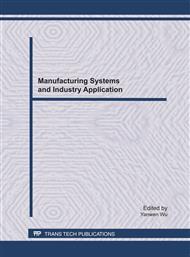p.569
p.574
p.578
p.584
p.590
p.594
p.599
p.605
p.609
The Networking Integrated Character Education (NICE) Project: An Experimental Study
Abstract:
There are few studies connecting character education with Blog-assisted online learning environment in elementary school scenarios. Therefore, the Networking Integrated Character Education (NICE) project has been planned, designed, developed and implemented in the study. The NICE system focuses on the interaction and communication to enhance the awareness and behavior of character for children. There were sixty-nine fifth graders of a public elementary school in Taiwan involved in this study. The online questionnaires were given to find out the feasibility of the project. Data were analyzed by ANCOVA. The experimental results showed that there were significant in all of the two core values Thanksgiving and Helping Others. Based on the online survey, this Blog-based NICE project could help teachers or instructors facilitate students’ learning and would be a very useful and valuable instructional platform for young learners to implement and make progress on character development.
Info:
Periodical:
Pages:
590-593
DOI:
Citation:
Online since:
June 2011
Authors:
Price:
Сopyright:
© 2011 Trans Tech Publications Ltd. All Rights Reserved
Share:
Citation:


